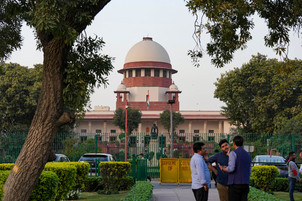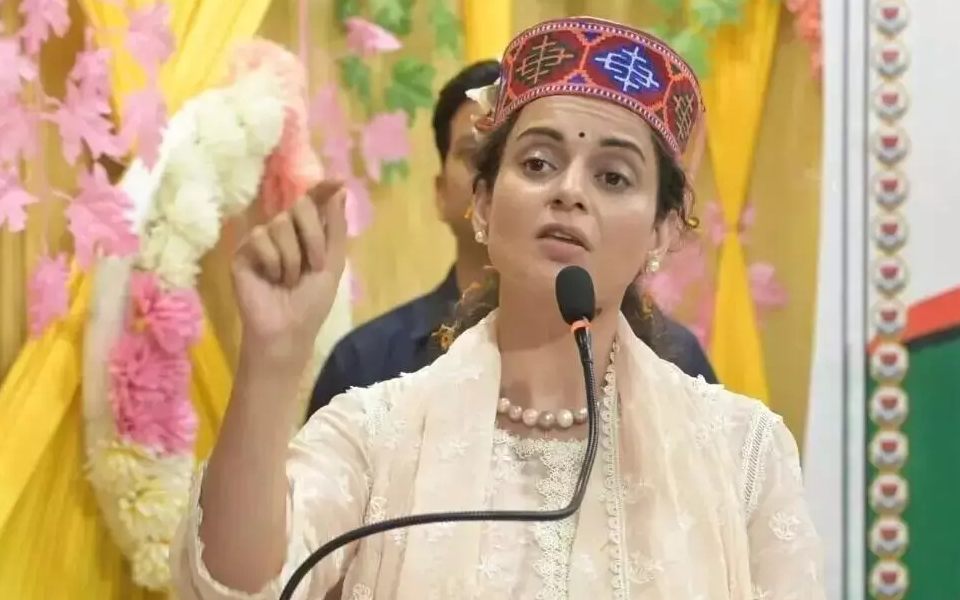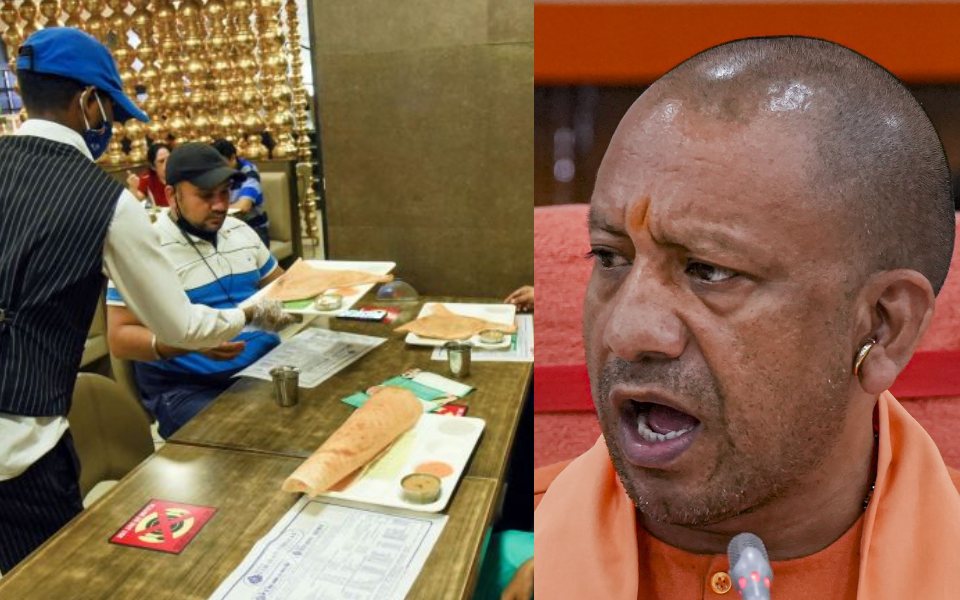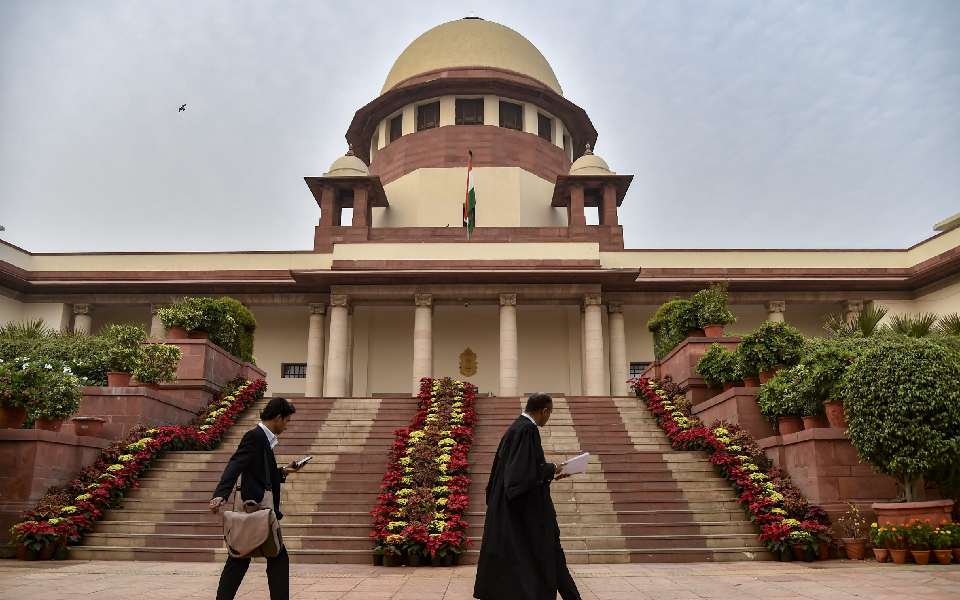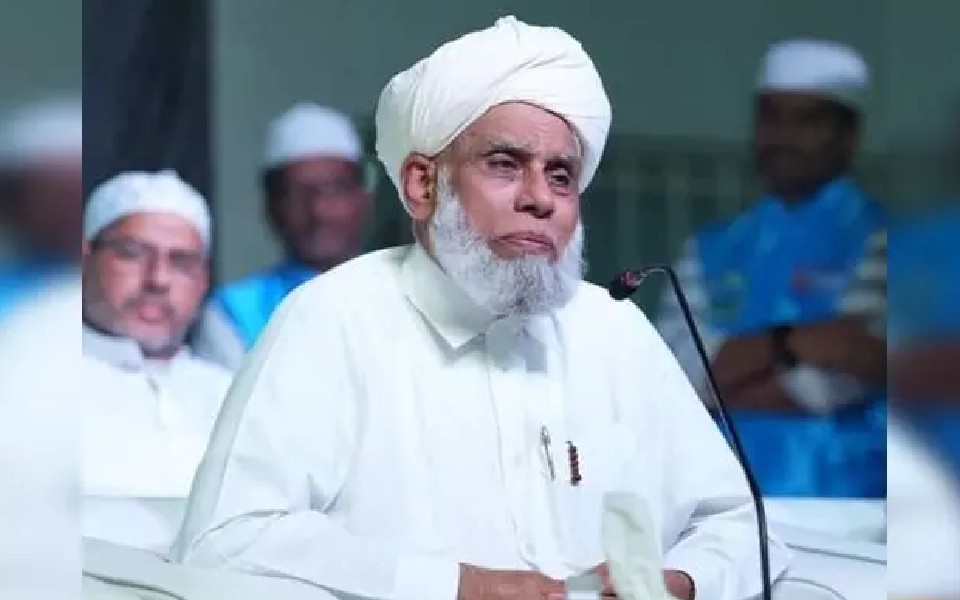New Delhi, Mar 12: The Centre has opposed in the Supreme Court a batch of pleas seeking legal validation of same-sex marriage, saying it would cause a complete havoc with the delicate balance of personal laws and in accepted societal values.
In an affidavit before the Supreme Court which is scheduled to hear the matter on Monday, the government submitted that despite the decriminalisation of Section 377 of the Indian Penal Code, the petitioners cannot claim a fundamental right for same-sex marriage to be recognised under the laws of the country.
At the same time it submitted that though the Centre limits its recognition to heterosexual relationships, there may be other forms of marriages or unions or personal understandings of relationships between individuals in a society and these "are not unlawful".
It said western decisions sans any basis in Indian constitutional law jurisprudence cannot be imported in this context, while asserting that granting recognition to human relations is a legislative function and can never be a subject of judicial adjudication.
"Marriage, as an institution in law, has many statutory and other consequences under various legislative enactments. Therefore, any formal recognition of such human relationship cannot be regarded as just a privacy issue between two adults," it said.
The Centre said the institution of marriage between two individuals of the same gender is neither recognised nor accepted in any uncodified personal laws or any codified statutory laws.
The government said that at the outset the notion of marriage itself necessarily and inevitably presupposes a union between two persons of the opposite sex and this definition is socially, culturally and legally ingrained into the very idea and concept of marriage and ought not to be disturbed or diluted by judicial interpretation.
"It must be kept in mind that granting recognition and conferring rights recognising human relation which has its consequences in law, and privileges, is in essence a legislative function and can never be the subject matter of judicial adjudication. The prayer made by the petitioner before this court, is, therefore, wholly unsustainable, untenable and misplaced," it said.
The Centre said, "It is submitted that despite the decriminalisation of Section 377 of the Indian Penal Code, the petitioners cannot claim a fundamental right for same-sex marriage to be recognised under the laws of the country."
It said that even if such right is claimed under Article 21 of the Constitution, such right can be curtailed by competent legislature on permissible constitutional grounds including legitimate state interest.
"It is submitted that there cannot be an untrammelled right under Article 21 and cannot override other constitutional principles," the government said, adding that Parliament has designed and framed marriage laws, which are governed by personal laws/codified laws relatable to customs of various religious communities, to recognise only the union of a man and a woman to be capable of legal sanction, and thereby claim legal and statutory rights and consequences.
"It is submitted that any interference with the same would cause a complete havoc with the delicate balance of personal laws in the country and in accepted societal values," it said.
The Centre said that while there may be various other forms of marriages or unions or personal understandings of relationships between individuals in a society, the State limits the recognition to the heterosexual form.
"The State does not recognise these other forms of marriages or unions or personal understandings of relationships between individuals in a society but the same are not unlawful," it said.
The government said that the registration of marriage of same sex persons also results in violation of existing personal as well as codified law provisions such as "degrees of prohibited relationship", "conditions of marriage" and "ceremonial and ritual requirements" under personal laws governing the individuals.
It said marriage between a biological man and a biological woman takes place either under the personal laws or codified laws namely, the Hindu Marriage Act, 1955, the Christian Marriage Act, 1872, the Parsi Marriage and Divorce Act, 1936 or the Special Marriage Act, 1954 or the Foreign Marriage Act, 1969.
"Family issues are far beyond mere recognition and registration of marriage between persons belonging to the same gender. Living together as partners and having sexual relationship by same sex individuals (which is decriminalised now) is not comparable with the Indian family unit concept of a husband, a wife and children which necessarily presuppose a biological man as a 'husband', a biological woman as a 'wife' and the children born out of the union between the two - who are reared by the biological man as father and the biological woman as mother," it said.
The Centre said that by and large the institution of marriage has a sanctity attached to it and in major parts of the country, it is regarded as a sacrament, a holy union and a "sanskar".
"In our country, despite statutory recognition of the relationship of marriage between a biological man and a biological woman, marriage necessarily depends upon age-old customs, rituals, practices, cultural ethos and societal values", it said.
The government said that all these indicate that in India, marriage is a bond between a biological man and a biological woman only and that is the legislative policy of the legislature and the petitioners cannot pray for a mandamus of the court to change the legislative policy.
It said this particular human relationship, in its present form, that is between a biological man and a biological woman is accepted statutorily, religiously and socially and any recognised deviation of this human relationship can occur only before the competent legislature.
It added while a marriage may be between two private individuals having a profound impact on their private lives, it cannot be relegated to merely a concept within the domain of privacy of an individual when the question of formalizing their relationship and the legal consequences flowing therefrom is involved.
Let the Truth be known. If you read VB and like VB, please be a VB Supporter and Help us deliver the Truth to one and all.
New Delhi, Sep 24: The Congress on Tuesday cited BJP MP Kangana Ranaut's purported remarks on farm laws to allege that the ruling party was making efforts to bring back the three laws that were repealed in 2021, and asserted that Haryana will give a befitting reply to it.
The Congress shared on X an undated video of Ranaut in which she is purportedly saying in Hindi, "Farm laws that have been repealed should be brought back. I think this may get controversial. The laws in farmers' interest be brought back. Farmers should themselves demand this (to bring farm laws back) so that there is no hindrance to their prosperity.
"Farmers are a pillar of strength in India's progress. Only in some states, they had objected to farm laws. I appeal with folded hands that farm laws should be brought back in the interest of farmers."
In a post in Hindi along with the video, the Congress said, "The three black laws imposed on farmers should be brought back: BJP MP Kangana Ranaut has said this. More than 750 farmers of the country were martyred, only then did the Modi government wake up and these black laws were withdrawn."
Now BJP MPs are planning to bring back these laws, the Congress alleged.
"The Congress is with the farmers. These black laws will never return, no matter how hard Narendra Modi and his MPs try," the opposition party said on X.
Congress spokesperson Supriya Shrinate also shared the video of Ranaut on X and said, "'All three farm laws should be brought back': BJP MP Kangana Ranaut. More than 750 farmers were martyred while protesting against the three black farmer laws. Efforts are being made to bring them back."
"We will never let that happen. Haryana will answer first," she said in an apparent reference to the assembly polls in Haryana.
Congress' media and publicity department head Pawan Khera also shared the video on X and said it was the BJP's "real thinking".
"How many times will you deceive the farmers, you two-faced people?" Khera said in a post in Hindi.
The three laws -- Farmer's Produce Trade and Commerce (Promotion and Facilitation) Act; The Farmers (Empowerment and Protection) Agreement of Price Assurance and Farm Services Act; and The Essential Commodities (Amendment) Act -- were repealed in November 2021.
The farmers' protest started at the fag-end of November 2020 and ended after Parliament repealed the three laws. The legislations came into force in June 2020 and were repealed in November 2021.
“तीनों किसान क़ानून वापस लाये जाने चाहिए” : BJP MP कंगना रनौत
— Supriya Shrinate (@SupriyaShrinate) September 24, 2024
जिन तीन काले किसान विरोधी क़ानूनों की मुख़ालिफ़त करते 750 से ज़्यादा किसान शहीद हो गए
उनको दोबारा से लाने की कोशिश की जा रही है. हम ऐसा कभी नहीं होने देंगे
सबसे पहला जवाब हरियाणा देगा pic.twitter.com/kRAkRuE2cc

